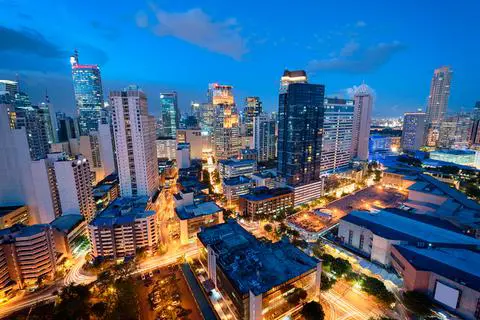By APD writer Melo M. Acuña
MANILA, Jan.24 (APD) – Socioeconomic Planning Secretary Ernesto M. Pernia said the country’s economy remained stable with the 6.1 percent growth in the fourth quarter of 2018 from the revised 6.0 percent in the third quarter.
Speaking before the media and other government officials, Secretary Pernia said the Philippines is behind India, Vietnam and China.
“From Q1 to Q3 of 2018, we overtook Indonesia and Thailand in terms of economic performance,” he said. He added the Philippine economy is on a “higher growth trajectory” with the economy growing at an average of 6.5 percent in the first 10 quarters of the Duterte government.
Industry grew to 6.9 percent, a deceleration from the 7.9 percent for the same period in 2017. He explained this was due to weak business confidence and policy uncertainties aggravated by sluggish export demand amid a global economic slowdown.
Secretary Pernia said the government will address the policy uncertainties and increase macro-competitiveness through efficiency in transport, communications and overall logistics network.
“To ensure inclusivity, we need to focus on the integration of industries between small and medium enterprises on one hand, and large establishments on the other,” he explained.
Underscoring the need to attract more investments, he said they in government, favor moves in the Legislature to amend the existing Foreign Investment Act, Retail Trade Act and the Public Service Act.
He remained optimistic with massive investments in infrastructure will address logistical concerns while amendments will attract foreign investments in manufacturing.
However, he noted agriculture slumped to 0.8 percent from a growth rate of 4.0 percent last year with palay contracting at 1.0 percent.
“This clearly point to a thorough and honest to goodness reform of the sector,” he further said.
The decline in palay production, sugar cane and cassava tempered the gains of the sector in the fourth quarter due to several typhoons that hit the main island of Luzon and still inadequate irrigation water and insufficient rainfall in Central Visayas.
Government spending has remained stable in the fourth quarter as it nearly doubled from 2017 to 2018.
Looking forward, Secretary Pernia said he expects household consumption to recover as inflationary pressures subside with a subdued outlook on international oil prices and the expected reduction in rice prices from the enactment of the Rice Tariffication Law.
The government believes the measure would generate revenues that will be given farmers to boost their productivity.
“We will continue to be on the lookout for downside risks such as the US-China trade dispute dampening global demand, with higher tariffs and protectionist policies stifling investment and disrupting global value chains,” he said. He also considers tighter financing conditions in emerging markets due to the strengthening of the US dollar and rising risk premiums, and heightened geopolitical tensions.
In conclusion, Secretary Pernia said their priorities include restoring business confidence and opening foreign investments which require consistency in policy environment. The long-term national security concerns are being acted on to attract foreign investments and ensure sustainable development.
(ASIA PACIFIC DAILY)
 简体中文
简体中文

